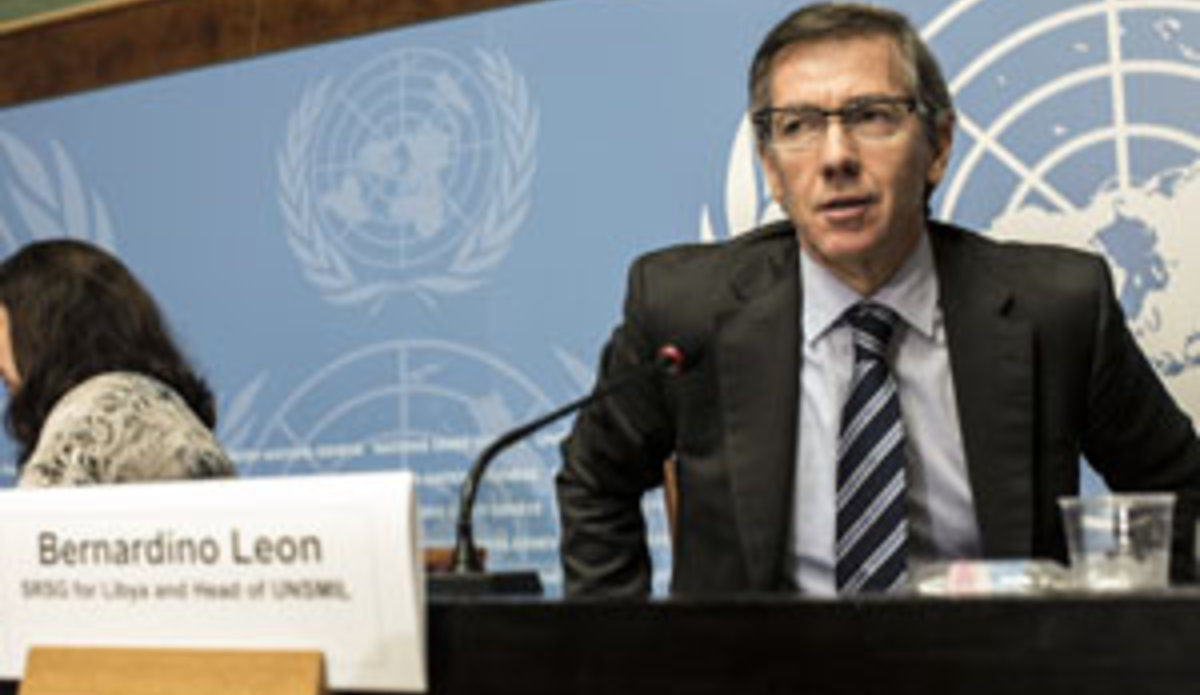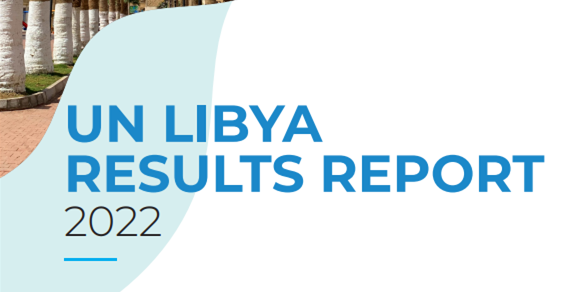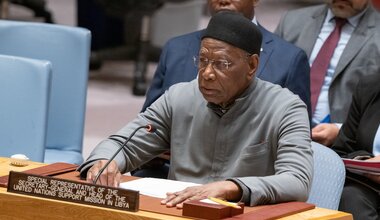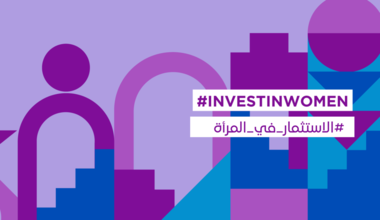Briefing by the Special Representative of the Secretary-General for Libya to the Security Council
(As delivered)
Mr. President, Distinguished Members of the Council, Excellencies
1. By now, you would have received the Secretary-General’s Special Report on the Strategic Assessment of the United Nations presence in Libya, as well as the Secretary-General’s Report on the United Nations Support Mission in Libya detailing the Mission’s work over the past six months.
2. Two weeks ago, I briefed this Council in the aftermath of the horrific beheadings by Islamic State affiliated elements of 21 men, including 20 Egyptian nationals. This was a crime so heinous and vile, yet its perpetrators showed no misgivings about presenting the world with images of their brutal and base barbarity.
3. On 20 February, two days after my briefing to the Council, Libyans were again reminded of the lengths to which terrorists and extremists will go. A car bomb in al-Qubba, the hometown of House of Representatives President, Mr Agila Gwaider, left 44 people dead according to official figures released by the Government. This is the highest number of fatalities recorded as a result of any single act of terrorism in Libya.
4. Even in the current climate of political polarisation and armed hostilities, the nature and scale of this attack shocked all Libyans, irrespective of political affiliations. Across political divisions, condemnation was swift and unequivocal.
Mr. President,
5. I have no doubt that the attack in al-Qubba, coming days only before a planned round of dialogue talks, was a blatant attempt to derail any opportunity of Libyans coming together to forge consensus on a peaceful solution to the political crisis and military conflict that has gripped their country for much of the past year.
6. I also have no doubt that terrorist groups such as Islamic State will stop at nothing in their bid to play on existing political divisions and sense of mutual mistrust between the main political stakeholders in order to consolidate their own presence and influence in Libya.
7. The sense of fear and concern within Libya regarding the threat of terrorism is very palpable. In meetings I have had over the past week, , Libya’s counterparts have expressed grave concern about the danger that terrorism poses to Libya’s security and stability, and of the very limited capacities of the Libyan State to effectively confront this challenge. It is crucial to create the right conditions to address this threat, while at the same time we should be ready to support Libyan efforts to tackle terrorism and extremism. We should be careful to not underestimate the sense of urgency and alarm underpinning this request for international support on addressing the threat of terrorism.
8. Earlier this week, I held a new round of consultations with Libyan political leaders in Tobruk and Tripoli. Both sides have since delivered a clear and resounding message that terrorism will not be allowed to prevail or hold hostage the dialogue process. Following the conclusion of a seven-day mourning period announced by the House of Representatives in the aftermath of the latest terrorism attack, the House formally voted to resume participation in the dialogue talks.
9. Tomorrow, dialogue teams representing the major political stakeholders will be convening in Morocco to advance discussions with respect to proposals on the three key agenda items.
10. The first relates to the formation of a national unity government,,under whose umbrella Libyans can adopt a unified approach to address the huge political, security and economic challenges facing Libya.
11. The second will address security arrangements to pave the way for a comprehensive ceasefire, the phased withdrawal of all armed groups from towns and cities, measures for weapons and arms control, and adequate monitoring and implementation mechanisms.
12. The third is related to the completion of the constitution drafting process and the need for clear timelines in this regard.
13. To galvanise wider support for the on-going talks, UNSMIL will next week convene two other dialogue meetings. The first meeting will bring together in Algeria a range of prominent Libyan political leaders and activists. The second meeting in Brussels will draw together municipal representatives from across Libya to farther implementation of the confidence building measures previously agreed to in Geneva. Later we will convene a tribal leaders meeting, very probably in Egypt.
Mr. President,
14. While I am confident that there is sufficient political will and determination on all sides to reach a comprehensive political settlement, I cannot overstate the challenges facing the process.
15. Foremost among these is the fluid security situation, as the warring parties continue to engage in reciprocal attacks against each other in different parts of the country. We have repeatedly called on all parties, particularly on the military front, to desist from taking any action that would risk escalating tensions.
16. Yesterday’s and today's attacks by both sides on public infrastructure and facilities, including airports, coming a day after the different parties recommitted themselves to resume the dialogue talks, is unacceptable, reckless and totally uncalled for. The escalation calls into question the commitment of those responsible behind these latest acts of aggression and is a stark reminder that more needs to be done on the security front.
17. I call on Libya’s political leadership to take all the necessary measures to prevent any further attacks, and to exercise its authority in line with its legal and political responsibilities to ensure that all forces operating under its command comply with the political commitment it has made with respect to the dialogue.
18. Moreover, the systematic campaign of misinformation which recently surfaced in various Libyan media outlets regarding the dialogue and its outcomes is symptomatic of the deep mistrust that continues to manifest itself on the Libyan political landscape.
19. Only a few days ago I met with a sizeable number of members of the House of Representatives to discuss the dialogue process and dissipate doubts regarding its scope and transparency. In this context, I would like to take this opportunity to once again reiterate the assurances I have given publicly and in private to all parties in Libya that this is a Libyan-Libyan dialogue which is anchored in the principle of mutual consensus among the parties. The role of the United Nations has been to facilitate these talks without any imposition, while maintaining the utmost respect for Libyan ownership of the process.
20. In our efforts to ensure transparency of the process, every participant will be required to consult with their respective constituency before any final agreement is formally endorsed.
Mr. President,
21. On behalf of the Secretary-General, allow me to take this opportunity to express my thanks and appreciation to this Council for its unwavering support to the Libyan political dialogue, as well as to all Member States and other international partners that have been generous in extending financial, logistical and other support to the process.
22. Within the span of a few weeks only since the first round of talks convened on 15 January, Libya’s political leaders have come a long way towards injecting hope that an end to their country’s political crisis and armed conflict is possible. The sense of expectation and anticipation on the part of all segments of the Libyan population is profound.
23. While the onus remains on Libya’s leaders to agree on a roadmap for the resumption of the political process and an end to the conflict, the support of the international community will be critical to the successful implementation of a political agreement should the parties conclude one.
24. The ability of a government of a national unity government to govern effectively and deliver a notable change in the lives of ordinary Libyans will, however, be largely dependent on our collective ability as the international community to rethink and articulate a clear strategy for the delivery of technical assistance. The limited progress made over the past three years towards building capacities at all levels of the Libyan State should serve as a stark warning of the huge challenges ahead.
25. The worsening humanitarian situation in the country, including in Warshafana and Benghazi, calls for a stronger commitment of the international community to address the needs of the people who have been victims of this conflict. In Geneva, municipal and local council agreed on a set of confidence building measures and we must step up our efforts to implement them and start making a difference in the lives of the Libyan people.
26. The international community must also move quickly to present a clearly articulated strategy in support of the Libyan State and the efforts of a national unity government in combatting the growing threat of terrorism. I believe this will be key to allaying growing concerns across Libya regarding what is perceived as the real and imminent danger that extremist groups like ISIL pose to Libya’s overall security and stability.
Mr. President,
27. The overall situation on the ground is deteriorating rapidly, and Libya can no longer afford to allow the political crisis and armed conflict that has gripped the country for much of the past year cannot to fester longer. Unless Libya’s leaders act quickly and decisively, the risks to their country’s national unity and territorial integrity are real and imminent.
28. As difficult as the past few years may have been to their country, the Libyan people have not given on their hopes and aspirations for a modern Libyan democratic state based on the rule of law and respect for human rights.
29. Tomorrow’s meeting in Morocco is an important opportunity to honour the sacrifices that Libya’s people have made in their quest for a life of dignity and respect, and for a country that safeguards the interests of future generations. Difficult decisions and compromises will be needed. But Libya’s leaders must be rest assured that as they make these decisions, the United Nations and the international community will be their partner in this difficult journey ahead.
Thank you.
 United Nations Peacekeeping
United Nations Peacekeeping UN
UN








